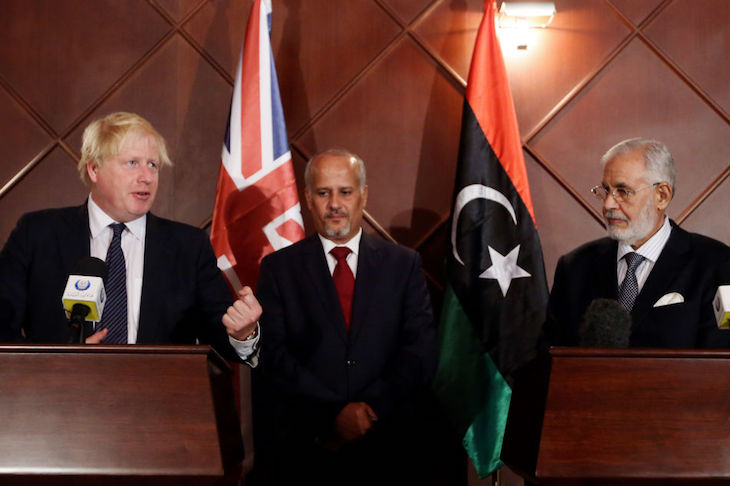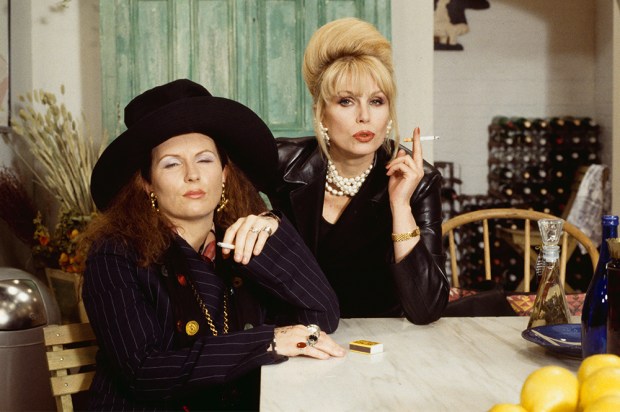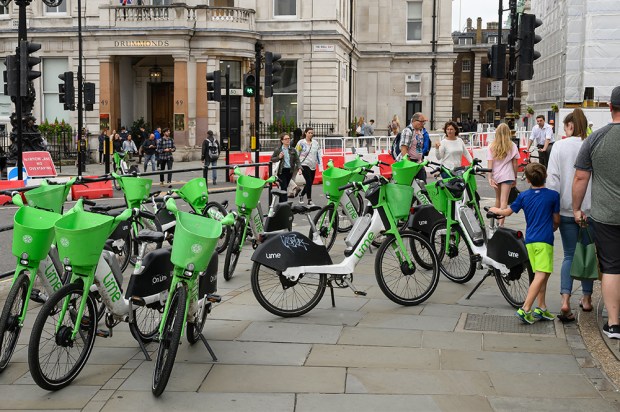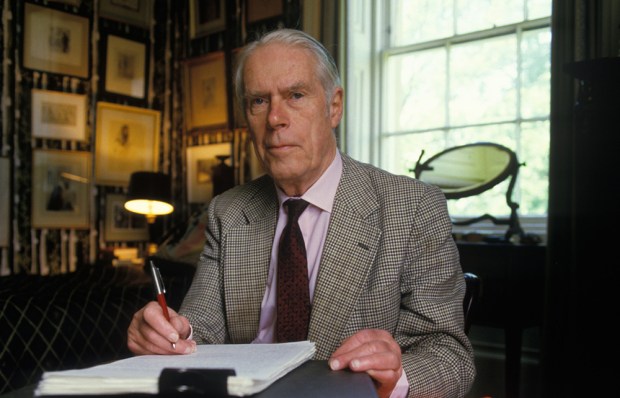Boris Johnson is inspecting the guard of honour and we are doing our best not to giggle. The Foreign Secretary is walking down a line of soldiers from the Libyan National Army. The red carpets are blowing over in the breeze. One of the senior officers looks uncannily like Colonel Gaddafi. And the band is playing the worst version of the national anthem I have ever heard. Yet Mr Johnson manages to control his features. Just. For this is the headquarters of Field Marshal Khalifa Haftar, whose forces control large swaths of eastern Libya. A thought strikes me. Mr Johnson’s critics accuse him of upsetting allies, lacking foreign policy vision and speaking with forked tongue over Brexit. Yet here he is, clutching his red Foreign Office folder, sweating in the baking North African sun, paying court to a military strongman whose support will be needed if Libya is ever to have a democratic future. For two days, Mr Johnson will immerse himself in the minutiae of this country’s confusing tribal politics, going to places no western politician has been for years. The Foreign Secretary may not yet be another Castlereagh or Kissinger — but he is getting on with the job.
En route to Libya, we drop briefly into Tunis. The ambassador’s residence here is a glorious white palace, tiled from floor to ceiling in the Tunisian style, a few acres of cool calm in a bustling city. The building was given to Britain by a Turkish bey in 1850 and it briefly served as the headquarters of General Alexander during the second world war. On one wall there is a framed telegram, dated 13 May 1943 and marked ‘personal for the Prime Minister’. It reads: ‘Sir, it is my duty to report that the Tunisian campaign is over. All enemy resistance has ceased. We are masters of the North African shores. Signed H.R. Alexander.’ No wonder he was known as Churchill’s favourite general.
A diplomatic incident is narrowly averted. The Foreign Secretary is keen to avail himself of the fine swimming pool at the Tunis residence. Trunks are donned and a towel found before Mr Johnson is told that the new United Nations special representative to Libya, Ghassan Salamé, is on his way and perhaps a suit might be more appropriate. I am not sure that the staff has been briefed to expect the Foreign Secretary to wander round the residence semi-naked beneath the portraits of Queen Victoria and George V. He returns with just enough time to tuck in his shirt before the arrival of his guest.
What a contrast in Tripoli. We visit the burned-out hulk of the former British residence that was destroyed by a mob in 2011. The ambassador was forced to flee, abandoning all his personal possessions. Today the building is unsafe. But reminders of past glories lie in the ruins. The remnants of a fine snooker table; an old invitation to a Queen’s birthday party. It was here that Tony Blair stayed when he was trying to bring Colonel Gaddafi in from the cold. But as the UK increases its diplomatic presence — there is not quite a full embassy yet — the Foreign and Commonwealth Office is looking at reviving the old chancery if it can find the money. With an imperial flourish, Mr Johnson raises a Union Flag on the site for the first time in six years.
At a press conference in Tripoli, Mr Johnson starts quoting Herodotus. The Libyan foreign minister looks slightly alarmed, uncertain what is coming next. The Greek historian apparently claimed that the world could be divided into Europe, Asia and Libya. The Foreign Secretary admits that this is not geographically accurate but it shows the historical importance of Libya. The Libyans appear to take the point but still look a little puzzled.
Mr Johnson gives us a scoop. Of sorts. He reveals he is thinking of taking up golf. ‘I think I am getting to the right age,’ he says. I am surprised by how depressed this makes me feel.
As a diplomatic correspondent, I am wearily familiar with airline food. And my hopes rarely rise when I board an RAF jet. But oh, what bliss! On the flight to Libya, the aircrew present us with a plate of tasty sandwiches, substantial slices of ginger and fruit cake, and fresh, warm scones with proper strawberry jam and yes, clotted cream from Rodda’s, whom I have always liked to imagine as a strong-armed Cornish matron who churns for her county. Nota bene, British Airways.
Got something to add? Join the discussion and comment below.
Get 10 issues for just $10
Subscribe to The Spectator Australia today for the next 10 magazine issues, plus full online access, for just $10.
You might disagree with half of it, but you’ll enjoy reading all of it. Try your first month for free, then just $2 a week for the remainder of your first year.














Comments
Don't miss out
Join the conversation with other Spectator Australia readers. Subscribe to leave a comment.
SUBSCRIBEAlready a subscriber? Log in